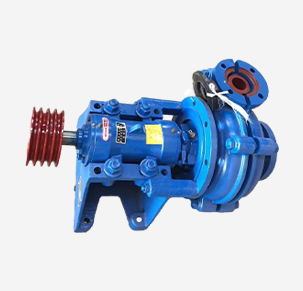Latin
- Afrikaans
- Albanian
- Amharic
- Arabic
- Armenian
- Azerbaijani
- Basque
- Belarusian
- Bengali
- Bosnian
- Bulgarian
- Catalan
- Cebuano
- Corsican
- Croatian
- Czech
- Danish
- Dutch
- English
- Esperanto
- Estonian
- Finnish
- French
- Frisian
- Galician
- Georgian
- German
- Greek
- Gujarati
- Haitian Creole
- hausa
- hawaiian
- Hebrew
- Hindi
- Miao
- Hungarian
- Icelandic
- igbo
- Indonesian
- irish
- Italian
- Japanese
- Javanese
- Kannada
- kazakh
- Khmer
- Rwandese
- Korean
- Kurdish
- Kyrgyz
- Lao
- Latin
- Latvian
- Lithuanian
- Luxembourgish
- Macedonian
- Malgashi
- Malay
- Malayalam
- Maltese
- Maori
- Marathi
- Mongolian
- Myanmar
- Nepali
- Norwegian
- Norwegian
- Occitan
- Pashto
- Persian
- Polish
- Portuguese
- Punjabi
- Romanian
- Russian
- Samoan
- Scottish Gaelic
- Serbian
- Sesotho
- Shona
- Sindhi
- Sinhala
- Slovak
- Slovenian
- Somali
- Spanish
- Sundanese
- Swahili
- Swedish
- Tagalog
- Tajik
- Tamil
- Tatar
- Telugu
- Thai
- Turkish
- Turkmen
- Ukrainian
- Urdu
- Uighur
- Uzbek
- Vietnamese
- Welsh
- Bantu
- Yiddish
- Yoruba
- Zulu
Telephone: +86 13120555503
Email: frank@cypump.com
Dec . 12, 2024 10:29 Back to list
pumps in chemical engineering
Pumps in Chemical Engineering A Vital Component for Fluid Transfer
In the realm of chemical engineering, pumps play an indispensable role in transporting liquids and slurries critical to various industrial processes. These mechanisms are designed to move fluids from one point to another, overcoming resistance encountered in piping systems and ensuring the efficient operation of chemical processes. This article explores the types of pumps used in chemical engineering, their applications, design considerations, and recent advancements in pump technology.
Types of Pumps
Pumps in chemical engineering can be broadly classified into two categories positive displacement pumps and centrifugal pumps.
1. Positive Displacement Pumps These pumps operate by trapping a fixed amount of fluid and forcing it into the discharge pipe. This category includes gear pumps, diaphragm pumps, and piston pumps. They are particularly useful for handling highly viscous fluids, as their design allows for consistent flow rates regardless of changes in pressure. Positive displacement pumps are ideal for applications requiring precise volume measurements, such as in metering processes for pharmaceuticals and food industries.
2. Centrifugal Pumps In contrast, centrifugal pumps utilize kinetic energy generated by a rotating impeller to move fluid. These pumps are widely used due to their ability to handle large volumes of liquids at relatively low viscosities. They are suitable for applications in water treatment, petrochemical industries, and chemical processing. Centrifugal pumps can be further categorized based on their construction – single-stage or multi-stage, with the latter providing higher pressure capabilities.
Applications
Pumps are found in numerous applications within the chemical engineering sector. They are essential in processes such as
- Reactor Feed Delivering reactants to chemical reactors efficiently. - Heat Exchangers Ensuring proper circulation of fluids within thermal systems. - Distillation Columns Supporting separation processes by maintaining flow rates. - Waste Management Moving effluents and slurries for treatment and disposal.
Chemical pumps must be compatible with the fluids they handle, including corrosive substances, abrasives, and high-temperature materials. This compatibility is critical to ensure safety and maintain the integrity of the equipment.
pumps in chemical engineering

Design Considerations
The design of pumps used in chemical engineering must take various factors into account
- Material Selection Pumps must be constructed from materials resistant to corrosion and erosion, such as stainless steel, polymers, or specialized alloys, depending on the nature of the fluid being handled.
- Flow Rate and Pressure Requirements The specific application determines the desired flow rate and the pressure ranges the pump must achieve. This necessitates careful calculation and selection of pump type and size.
- Viscosity and Temperature The viscosity of the fluid heavily influences the pump choice. Higher viscosity fluids require positive displacement pumps, while centrifugal pumps are better for low viscosity. Additionally, the operating temperature may require special materials to prevent deformation or failure.
Recent Advancements
Recent technological advancements have prompted significant improvements in the design and efficiency of pumps in chemical engineering. The integration of smart technology and automation has enhanced monitoring capabilities. Sensors providing real-time data on flow rates, pressure, and operational status contribute to predictive maintenance, reducing downtime and enhancing safety.
Moreover, developments in computational fluid dynamics (CFD) allow for more efficient pump designs that minimize energy consumption. Advanced materials, such as ceramics and composites, are paving the way for pumps that not only withstand harsh operating conditions but also improve overall performance metrics.
Conclusion
Pumps are the lifeblood of chemical engineering processes, facilitating the transport of fluids essential for production and processing operations. The choice of pump type, design considerations, and recent technological advancements all contribute to their effectiveness in various applications. As industries move towards more efficient and sustainable practices, the evolution of pump technology will undoubtedly play a pivotal role in meeting these challenges. Understanding the critical nature of pumps in chemical engineering will help engineers optimize processes and ensure the seamless operation of industrial systems.
-
China Wholesale Slurry Pumps - High-Quality & Durable Solutions
NewsMay.25,2025
-
China's Fast-Delivery Slurry Pumps Wholesale Vertical & Durable Models
NewsMay.25,2025
-
Affordable Ejector Pump Cost Reliable Solutions & Pricing
NewsMay.25,2025
-
Side Suction Pump High-Efficiency, Compact Design for Industrial Use
NewsMay.24,2025
-
China Vertical Spindle Slurry Pump Suppliers Durable & High-Efficiency
NewsMay.24,2025
-
Best Submersible Pumps for Basements, Septic & Ejector Systems Heavy-Duty
NewsMay.23,2025










